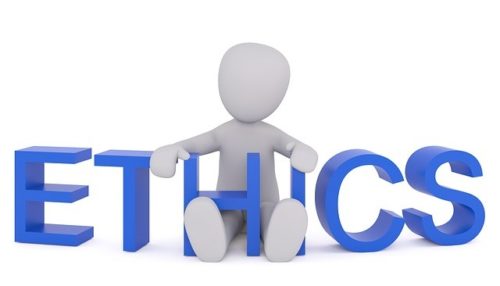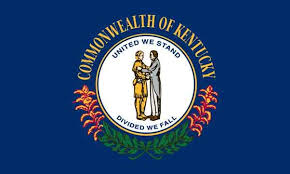- The early warning signs of impairment and how they relate to gambling disorders. Special attention will be given to the connection between the Coronavirus and it’s impact on social isolation, stress, anxiety, depression and gambling disorders.
- The free services that Lawyers Assistance Programs provide to lawyers, judges, their family members and law students.
- A close look at what barriers exist that prevent lawyers and judges from seeking the help they need will be provided.
- The role that education plays in breaking the stigma and fear associated with addiction and mental illness in the legal profession.
-
Gambling Addiction for Lawyers Recent studies have shown that there has been a dramatic increase in impairment due to alcoholism, drug addiction and mental health disorders among members of the legal profession. The statistics are compelling and clearly indicate that 1 out of 3 attorneys will likely have a need for substance use or mental health services at some point in their careers. What about that “other” addiction – Gambling ? In 2018, the United States Supreme Court, in Murphy vs. NCAA, held that sports gambling was legal in all of the United States. By 2020, 22 states had added on-line gambling accessible by cell phone, computer and tablets. With it came the compulsive gambler. This program will explore not only Gambling Disorder, but also the connection between gambling and the more well -known forms of impairment and why lawyers are at higher risk to develop problems. This problem has only been exacerbated by the stress, anxiety and isolation caused by the Coronavirus crisis. The results are startling. Agenda:
-
Psychosocial Evaluations and Consultation in Civil Litigation: Strategies to Understand and Humanize the ClientMany civil litigation attorneys (plaintiff and defense), particularly in the fields of personal injury and medical malpractice, struggle to understand the harm or injury their clients have suffered. In this course, forensic expert Mark Silver provides for the lawyer the psychosocial evaluation as a useful and humanistic tool to better conceptualize and understand the harms that the client has suffered, such that the lawyer can advocate for the client in a more informed and holistic manner with a consideration for a broad range of harms that may require compensation.Learning Objectives:I. Understand a new tool to add to a personal injury (or medical malpractice) practice to evaluate the harms clients have suffered for evaluation purposesII. Identify the possible psychological effects of harm from an injury in a much broader mannerIII. Recognize how to advocate for your client by understanding a broader range of harms
-
Cultural Competence: Recognizing Implicit Bias Successful legal practice requires positive working relationships within an environment of cooperation and respect. Professionalism prompts productivity, which creates profit. This program seeks to enhance your ability to achieve and maintain a thriving, productive, inclusive workplace of equal opportunity through a lively discussion of how to detect and address implicit bias, increase diversity, and enhance cultural competence. This program will focus on how to recognize implicit bias through some of the more common perceptible red flags flown by employees harboring biased views or discriminatory intent. By discussing what to look for, and where and when to look, this program will enhance the ability of managers and supervisors to spot problem employees sooner rather than later. Focusing on education and inclusion will reduce workplace harassment, bullying, and discrimination, boost morale, and help employers avoid legal liability. Addressing issues of implicit bias will help employers to maintain a workplace that is both culturally diverse and culturally sensitive, to promote a sense of inclusion and comfort for all employees.
-
Virginia CLE Bundle – All Courses Approved by the Virginia State Bar Courses Include: Anatomy of a Civil Tax Controversy (1.5 Credits) Overview of the Freedom of Information Act (2 Credits) Cross Examination Made Simple (1.5 Credits) Direct Examination: Making the Witness Look Good (1 Credit) Order in the Court: Ethical Interaction With Judges (1 Ethics Credit)
The Ethics of Listening to Clients (1 Ethics Credit)
-
Oregon 45 Credit Bundle with Ethics, A/J, Child/Elder Abuse, & Mental Health - All Courses Approved in Oregon Bundle Courses Include:
Unfair, Deceptive, or Abusive Acts or Practices (UDAAP) - (1.25 Credits)
Taking Off the Gloves: What to Expect in U.S. Tax Court (1.5 Credit) How the IRS Reconstructs Income in Tax Fraud Cases (1.5 Credit) Cross Examination Made Simple (1.5 Credit) Direct Examination: Making the Witness Look Good (1.25 Credits) Anatomy of a Civil Tax Controversy (1.5 Credits) Opening Statement As a Story 101 - (1 Credit) Opening Statements As a Story - 102 (1.5 Credits) Closing Arguments (1.75 Credits) Fair Debt Collection Practices Act - (1 Access to Justice Credit) Information Law Firms Collect and Store – What to do in the Event of a Cyber Breach? - (1.25 Credits) Story Telling in the Courtroom Part 1 - (1.5 Credits) Story Telling in the Courtroom Part 2 - (1.25 Credits) Story Telling in the Courtroom Part 3 - (1 Credit)Basics of How to Obtain a Patent (2 Credits)
The Fifth Amendment’s Essential Role in Offshore Audits (1.5 Credits) Digital Millennium Copyright Act (1 Credit) NCAA & Name, Image, Likeness – Updates & Anarchy in America! (1.25 Credits) Paying for Referrals: A Danger to the Payor and Recipient's Freedom (1.25 Credits) Dealing with the Disruptive Practitioner in a Legally Compliant Manner (1 Credit) Psychosocial Evaluations and Consultation in Civil Litigation: Strategies to Understand and Humanize the Client - (1.25 Credits) The Anti-Kickback Statute (1 Credit) The Healthcare Quality Improvement Act: How to Achieve Immunity in Your Peer Review Process (1 Credit) Physician Employment Agreements: Problem Areas that can be Landmines (1 Credit) NFL Contract Advisors – “So You Want To Be An Agent" (1.75 Credits) Order in the Court: Ethical Interaction With Judges (1 Ethics Credit) Effective and Ethical Use of Experts (1 Ethics Credit) Ethical Issues - Pro Bono Representation: Help the Profession Help Others (1 Ethics Credit) Online Civility and Professionalism for Attorneys (1 Ethics Credit) Unauthorized Practice of Law: Ethical Dilemmas and the Rule of Law (1 Ethics Credit) The Impact Of Internet and Sports Betting for Lawyers (1 Mental Health/Substance Abuse Credit) Elimination of Bias in the Legal Profession: Both Personally and Professionally (1 Access to Justice Credit) Technology & Bias Spreading It And Stopping It (1 Access to Justice Credit) Immigration Basics: Coming to America and Staying (1 Access to Justice Credit)Understanding Oregon's Legal Landscape for Child and Elder Abuse (1 Abuse Reporting Credit)
Evidence 101 (1.5 Credits) Evidence 102 - (1.25 Credits) Microsoft Office 365 For Attorneys (1 Credit) -
Oregon 45 Credit Bundle with Ethics, A/J, Child/Elder Abuse, & Mental Health - All Courses Approved in Oregon
-
Attorney Licensure and the Impaired Professional
-
Overview of the Freedom of Information Act In this timely and compelling CLE program, Attorney, Peter Sorenson presents “Overview of the Freedom of Information Act”. The program begins discussing how to help attorneys - in all fields of practice - learn how to more successfully navigate the FOIA process to better support their clients. Mr. Sorenson continues to explain the phases/steps of the FOIA process and the background and Purpose of FOIA. Mr. Sorenson then covers case law, hypotheticals, and practical tips to increase a positive FOIA request. The program concludes with an overview of the administrative appeal phase, and the judicial review phase. This program is a must for any attorney.
-
Avoiding the $1.5 Billion Mistake: Article 9 Lessons Learned from the GM Bankruptcy In this compelling and timely CLE program Attorney, Donald Petersen, covers Article 9 implications. Mr. Petersen will discuss the importance of Article 9 and how it works. Mr. Petersen will cover, systemically, his own steps to success with regards to Article 9 issues. This program is a must listen for any attorney wishing to learn more about Article 9 AGENDA: What is Secured Transactions? UCC and Article 9 Introduction Article 9 UCC Article 9 Steps to Success Proceeds Analysis PMSI Disbursing Cash Proceeds
-
Avoiding #MeToo and Sexual Harassment in the Workplace
-
Preparing Clients for Deposition: An Investment in Performance In this timely and compelling program, attorney, Alan Fanger Presents, “Preparing Clients for Deposition: An Investment in Performance”. Mr. Fanger begins the program with an overview of deposition goals and some client myths. Attorney Fanger continues the program by, systemically, covering the types of clients and how to approach each one. The program continues with general deposition guidelines and the best way to answer deposition questions. Mr. Fanger proceeds to explain the methods of deposition preparation. The program concludes with a discussion on mediation. With Mr. Fanger’s decades of experience, this program is a must for any attorney Agenda:
- Goal of Deposition
- Client Myths
- Types of Clients and Approaches
- General Deposition Guidelines
- Answer Deposition Questions
- Methods of Deposition Preparation
- Meditation
-
Cyber Security for Lawyers and Law Firms In this timely and compelling CLE program, attorney, Russell Jackman presents: “Cyber Security for Lawyers and Law Firms.” Mr. Jackman introduces the program going over major concerns with cyber security and explains what malware and cyber attacks are. The program continues with a discussion of who the attackers are and how they attack a law firm or lawyer's computer. The program gives an in-depth explanation of how to protect yourself and your computer. This program is for any attorney with a computer. AGENDA
- Concerns with Cyber Security
- Malware and Cyber Attacks
- Who is attacking
- Ransomware
- Hijackers and Adware
- Virus, bugs, and worms
- Anti-Virus Software
- Firewalls
-
No One Makes It Out Unscathed: The Effects of Personal Trauma and Stress On Our Lives In this timely and compelling CLE program, Attorney, Brian Quinn presents, “No One Makes It Out Unscathed: The Effects of Personal Trauma and Stress On Our Lives”. Mr. Quinn begins the program with a discussion on statistics and symptoms of stress and trauma. The program continues with an overview of warning signs, and dealing with stress and trauma. Mr. Quinn then explains the effects of trauma and the vicarious trauma in the legal profession. The program concludes with challenges of enabling and denial and how lawyers can seek help. This program is for all attorneys. Agenda
- Statistics
- Warning Signs at the Firm
- What is Stress
- Distress
- Dealing with Stress
- Trauma
- Types and Effects of Trauma
- Vicarious Trauma in Legal Profession
- Enabling and Denial
-
Attorney’s Guide to Online Defamation & Website Removal This program, presented by internet defamation attorney and published author Paul Sternberg, will provide an overview of what constitutes online defamation. Mr. Sternberg will discuss in detail the complex web of laws governing defamatory statements including the First Amendment, the Communications Decency Act, the Digital Millennium Copyright Act, recent case law, and more. Other topics to be discussed include the difference between libel and slander and considerations for determining if and when to file suit for defamatory conduct. The mechanics of a defamation suit will then be explored in great detail, including a review of cease and desist letters, anti-SLAPP laws, discovery exceptions, and much more.
- The First Amendment and Protected Speech
- Determining the Defaming Party
- Understanding Liability Under the CDA and the DMCA
- Legal Strategies to Consider in Defamation Cases
- Building a Defamation Case or Defense and Removing a Website
- Libel vs. Slander
- Weighing the Decision to Sue
- Deploying a Cease and Desist Letter
- SLAPP and ANTI-SLAPP Laws
- The Streisand Effect
- Elements to Prove
- Statutes of Limitation
-
Domestic violence as intimate terrorism: mitigation for criminal defense lawyers
Abuse of domestic partners in the form of physical, psychological, financial, sexual, and related forms of abuse tends to be systemic in nature causing complex trauma to the victim who suffers overwhelming psychological and emotional stress leading to various psychiatric issues forcing the victim to contend in unhealthy ways while experiencing deep feelings of helplessness, hopeless despair, and pain. This program will provide a detailed understanding of the victim’s experiences and challenges for the criminal defense lawyer in such cases.
Agenda
- To understand the types of abuses that victims suffer.
- To understand the concept of complex trauma and how it can be applied to victims of domestic abuse to understand their trauma for defense purposes.
- To understand the major psychiatric diagnoses associated with victims of domestic violence.
-
Leveling the Playing Field: The Elimination of Bias in the Legal Profession This program will cover laws regarding bias and discrimination and how they apply specifically within the legal profession. It will include The latest developments within state and federal laws governing bias and discrimination, the application of ABA Model Rule 8.4(g), as well as a host of practical considerations to consider in order to most effectively eliminate bias and maintain a healthy cultural climate within your law firm.
-
NFL Contract Advisors – “So You Want To Be An Agent" Welcome to NFL Contract Advisors – “So You Want To Be An Agent…” A big part of sports law is getting agents ready for the the obligations of managing high-profile clients. And that’s where lawyers come in. NFL Contract Advisors covers NFLPA certification requirements, agent eligibility, standards of conduct and prohibited actions, key points of agent-player contracts and player-team contracts, and the NFL’s personal conduct policy. And most importantly, we’ll look at some recent episodes of “bad client behavior” in the NFL (aka – The 3 AM Phone Call). Stories include a mercurial QB skipping a game to party (in disguise) in Las Vegas, a star wide receiver allegedly throwing furniture off a 14 th floor Florida condo balcony, the league’s highest-paid player bankrolling a dog fighting operation, and of course… “DeflateGate.” NFL Contract Advisors “So You Want To Be An Agent…” I. Introduction a. “3 AM Phone Call” – Johnny Manziel II. Collective Bargaining Agreement & the NFLPA a. “3 AM Phone Call” – Coach Urban Meyer & COVID Protocols III. Agent Eligibility IV. Agent Regulations Under the NFLPA a. “3 AM Phone Call” – Antonio Brown V. Agent-Player Agreements (SRA’s) VI. Player-Team Agreements a. “3 AM Phone Call” – Michael Vick VII. Personal Conduct Policy a. “3 AM Phone Call” – Tom Brady & DeflateGate VIII. Resources (NFLPA & CBA Rules, Regulations & Model Forms) a. https://nflpa.com/ b. https://www.nfl.com/
-
Direct Examination: Making the Witness Look Good
-
Fair Debt Collection Practices Act
Fair Debt Collection Practices Act
Faculty: Boyd W. GentryThe Fair Debt Collection Practices Act (FDCPA) regulates the behavior of debt collectors who attempt to collect personal, family, or household debts on behalf of creditors. Compliance with the FDCPA is crucial to avoid legal repercussions as it provides strict guidelines on acceptable debt collection practices, prohibits abusive, false or misleading behavior, and imposes civil liability for violations.
Agenda
Overview of the FDCPA
-
Briefly introduce the FDCPA and its purpose
-
Provide a high-level overview of the topics to be covered in the session
Why comply with the FDCPA?
-
Discuss the consequences of non-compliance with the FDCPA
-
Explain the benefits of compliance for debt collectors
Who is a “debt collector” regulated by the FDCPA?
-
Define the term “debt collector” under the FDCPA
-
Explain who is regulated by the FDCPA and who is not
To what “debts” does the FDCPA apply?
-
Discuss the types of debts that are covered by the FDCPA
-
Explain the types of debts that are not covered by the FDCPA
Finding the Debtor and what can and must I say?
-
Discuss the rules and limitations on contacting debtors
-
Explain what information debt collectors must provide to debtors when contacting them
Communicating with Third Parties
-
Discuss the limitations on contacting third parties to obtain information about debtors
-
Explain the types of information that can and cannot be disclosed to third parties
Validation of debts [15 USC 1692g]
-
Discuss the requirements for debt validation under the FDCPA
-
Explain the timeline for debt validation and what information must be provided to debtors
Cease Communication Requests
-
Explain the rules for honoring requests to cease communication from debtors
-
Discuss the consequences of failing to honor a cease communication request
Prohibited debt collection practices
-
Discuss the types of debt collection practices that are prohibited under the FDCPA, including harassment or abuse, false or misleading representations, and unfair practices
-
Explain the consequences of engaging in prohibited debt collection practices
Legal actions and civil liability
-
Discuss the legal actions that debt collectors can take under the FDCPA to collect debts
-
Explain the civil liability that debt collectors can face for violating the FDCPA
-
-
Introduction to Non-Profit Law In this timely, and compelling CLE program attorney, Todd Kulkin, presents “Introduction to Non-Profit”. The program begins with an overview of non-profit basics and the philosophy of non-profit practice. The program continues with an introduction to the tools of the trade and how to mitigate risks. Mr. Kulkin then provides a discussion on private inurement. The program concludes with an explanation of non-profits for business, religion, and politics.This program is for any attorney involved in non-profit law or has clients who are involved in a non-profit business. Agenda
- Non-Profit Basics
- Philosophy of Non-Profit Practice
- Tools of the Trade
- Non-Profits: Mitigating Risk
- Private Inurement
- Non-Profits and Business
- Non-Profits and Religion
- Non-Profits and Politics
-
Criminal Mitigation: Pre-Plea and Pre-Sentencing Strategies
Course Description
In this timely and compelling CLE course, attorney and forensic psychologist Mark Silver, presents “Criminal Mitigation: Pre-Plea and Pre-Sentencing Strategies”. Mr. Silver starts the program with an overview of various humanizing processes that a criminal law attorney can utilize to better advocate for their client. Mr. Silver then discusses how the use of psychological analysis can have a more positive impact on a client and increase their chances of success. This program is a must for any attorney. Learning Objectives/Agenda:- Summarize the definition and applicability of mitigation to a defendant's case
- Identify the multi-purpose uses of mitigation in the course of defense
- Examine how criminal mitigation can best assist one's client
- Describe which clients most benefit from criminal mitigation and why
-
Pre-sentence Investigation (PSI) Critique: Mitigation as Counter Strategy in Child-Pornography Cases In this timely, and compelling, CLE program attorney Mark Silver presents “Pre-sentence Investigation (PSI) Critique: Mitigation as Counter Strategy in Child-Pornography Cases”. The program begins with an explanation of what PSI is. The program continues with a discussion on the importance of PSI and what is missing from these investigations. Mr. Silver then presents evaluation tools and mitigation challenges. This program is for any attorney. Agenda:
- What is Pre-Sentence Investigation (PSI)
- Why this PSI is important
- What is missing from the PSI
- Evaluation tools
- Mitigation Challenges
-
Washington State 45 Credit Bundle with Ethics and Equity/Inclusion - All Courses Approved in Washington Bundle Courses Include: Psychosocial Evaluations and Consultation in Civil Litigation: Strategies to Understand and Humanize the Client (1 Credit) Off the Clock: Professional Ethics On Personal Time (1 Ethics Credit) Benefiting from New Markets Tax Credits (1 Credit) The Federal False Claims Act: Enforcement and Recent Updates (1.25 Credit) Attorney’s Guide to Online Defamation & Website Removal (1 Credit) Complex Trauma in Criminal Mitigation Cases: How Abuse and Neglect Cause Abnormal Development (1.25 Credits) A Lawyer’s Guide to Ethics and Ethical Networking in a Virtual World (2 Ethics Credits) Talc Litigation: Cross-examination of a Lung Cancer Plaintiff (1.25 Credits) Gambling Addiction for Lawyers (1 Credit) The Art and Science of Hourly Billing (1 Credit) Intermediate Topics: Title IX (1.5 Credits) Business and Asset Protection (1.25 Credits) Pre-sentence Investigation (PSI) Critique: Mitigation as Counter Strategy in Child-Pornography Cases (1.25 Credits) Is That a Worker or an Employee? Questions & Answers on Worker Classification (1.25 Credits) Cyber Security for Lawyers and Law Firms (1.25 Credits) Borderline Personality Disorder: Pre-Plea & Pre-Sentencing Mitigation Strategies (1.25 Credits) Criminal Mitigation: Pre-Pleas & Pre-Sentencing Strategies (1 Credit) Information Technology for Lawyers (1.25 Credits) Philosophy of a Business Legal Counselor (1.25 Credits) Introduction to Non-Profit Law (1.25 Credits) Ethics Compliance for Solo Practitioners (1.25 Ethics Credits) A Lawyer's Guide to Raising Capital (1.25 Credits) Anti Money Laundering for Business Lawyers (1.25 Credits) Entity Formation 101 (1.25 Credits) Athlete Agency Law (1.25 Credits) Ethics in Business Law (1.25 Ethics Credits) Banking for the Non-Banking Attorney (1.5 Credits) Copyright for Artists (1.5 Credits)
NFL Contract Advisors – “So You Want To Be An Agent" (1.75 Credits)
Cultural Competence: Recognizing Implicit Bias (1 Ethics Credit) Leveling the Playing Field: The Elimination of Bias in the Legal Profession (1 Ethics Credit) Principles for a Successful Jury Trial (1 Credit) No One Makes It Out Unscathed: The Effects of Personal Trauma and Stress On Our Lives (1 Credit) Talc Litigation: A Primer (1.25 Credits) Overview of the Freedom of Information Act (2 Credits) Evidence 101 (1.5 Credits) Elimination of Bias in the Legal Profession: Both Personally and Professionally (1 Equity/Inclusion Credit) -
Kentucky 12 Credit Bundle with Ethics All courses approved in Kentucky. Esquire CLE’s Sponsor No. 9024
-
Oklahoma 2 Credits Ethics Bundle Bundle Courses Include: Order in the Court: Ethical Interaction With Judges (1 Ethics Credit) Effective and Ethical Use of Experts (1 Ethics Credit)
-
New Hampshire 2 Credit Ethics Bundle Courses: Ethics of Business Law (1.25 Ethics Credits) Ethically Keeping Your Clients Trust Even When Things go Wrong (1 Ethics Credit)
-
Vermont 2 Credit Ethics Bundle - All Courses Approved in Vermont
-
Overcoming Common Barriers in a Social Security Disability Case Join Disability Law expert Scott Daniels in this riveting CLE program on how to best advocate for your client in a Social Security Disability case. Mr. Daniels will explain eligibility issues, lack of medical evidence, and gaps in a claimant’s work history. Finally, the program will highlight some frequent mistakes made by Administrative Law Judges. Daniels will keep you entertained as he teaches plaintiffs' attorneys how to zealously represent their clients at these important hearings. This program is a must watch for any attorney wishing to learn more about Social Security Disability cases. Agenda Applicable Social Security Laws Types of Disability Programs Evaluation Process Federal Disability Process Case Examples
-
Talc Litigation: A Primer In this timely and compelling CLE program, attorney, Roy Viola, presents "Talc Litigation: A Primer". Mr. Viola starts with an overview of what talc is and how it's mined. The program continues with a discussion of litigation issues including contamination and asbestos. Mr. Viola proceeds to explain diseases caused by talc and the current state of litigation. The program concludes with attorney Viola presenting recent verdicts and litigation trends. This program is a must for any attorney. Agenda:
- Talc Overview
- Contamination Issues
- Asbestos Litigation
- Talc Claims and Diseases
- State and future of litigation
-
Cannabis Law
In this timely and compelling CLE program, Attorney, Hanan Kolko presents Cannabis Law. Mr. Kolko starts the program with a discussion of the Federal Law with a focus on the Cole Memo. The program continues with an in depth explanation of case law, preemption, and the illegality defense. The program continues with an overview of recent ethical developments for lawyers with an emphasis on relevant ABA model rules. Mr. Kolko then presents different state ethical approaches and provides an ethical analysis between state and federal governments. The program concludes with an inquiry of other federal law on cannabis business and bankruptcy with regards to cannabis. This program is a must for any attorney. -
Is that Worker an Employee? Questions and Answers on Worker Classification In this timely, and compelling, CLE program attorney Michael DeBlis presents: “Is that a Worker or an Employee? Questions and Answers on Worker Classification.” Misclassification of employees as independent contractors is now a common phrase uttered by state and federal legislators and regulators. State task forces have been formed to crack down on businesses that do not pay unemployment insurance and workers’ compensation premiums or withhold taxes for workers whom the state believes are employees and not independent contractors. This program is for any attorney. Agenda:
- Why does it matter how a company classifies its workers?
- What are the consequences of worker misclassification?
- In what ways are state and federal regulatory agencies focusing on independent contractor misclassification?
- If I misclassify my workers as independent contractors rather than employees, how will the government find out?
- Does the fact that most, if not every company, in a given industry treats its sales force as independent contractors immunize XYZ Corporation from a successful challenge mounted by the IRS?
- Is there a simple test for whether a worker is an independent contractor or employee?
- My workers all sign a contract and agree they are independent contractors. Won’t that help?
- To be safe, should I just treat all workers as employees even if they are independent contractors?
- I’ve heard that Section 530 will protect my business as long as it follows an industry standard. Is that true?
- What factors militate in favor of a worker being classified as an independent contractor?
- I received a letter from the State Department of Labor or from the IRS that appears to question my worker classification. What should I do or not do?
- Recommendations to Minimize or Avoid Future Misclassification Exposure for Companies That Use Independent Contractors to Supplement Their Workforce
-
Civility and Professionalism: The Art of Graceful Disagreement The effectiveness of our adversarial legal system is greatly enhanced through the combination of talent and temperament. The mark of a fine lawyer is the ability to gain both reverence and respect through effective advocacy combined with civility and fair play. This combination decreases animosity from the conference room to the courtroom, promotes good faith negotiation, and will ultimately both benefit clients and improve the public perception of the profession. This course will provide a thorough examination of a lawyer’s ethical and professional duties both in and out of the courtroom as they relate to civility and professionalism. It will discuss the interaction between advocacy and civility using practical examples frequently faced by practitioners of every type, and provide recent case law and ethical rules discussing some common issues. It will cover applicable rules of both ethics and professionalism, as well as the duty of respect to the court and the court’s power of contempt.
-
Missouri 6.0 General Credit Bundle
Bundle Courses: Overview of the Freedom of Information Act Closing Arguments NCAA: Name, Image, and Likeness Evidence 101









